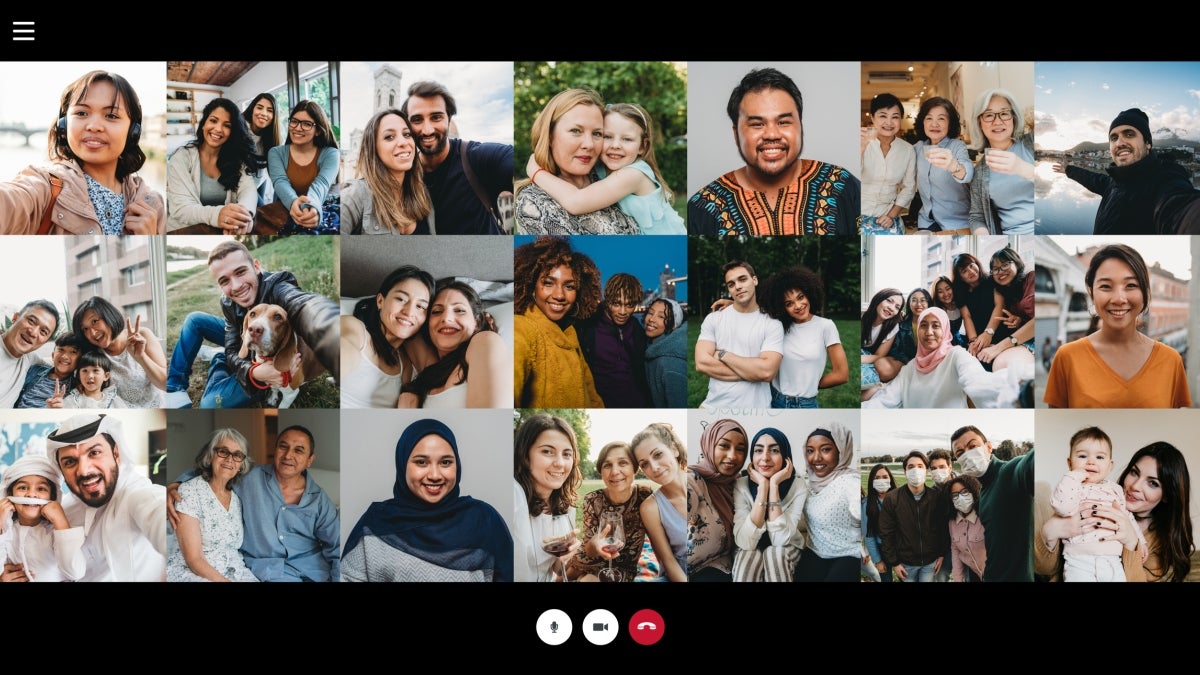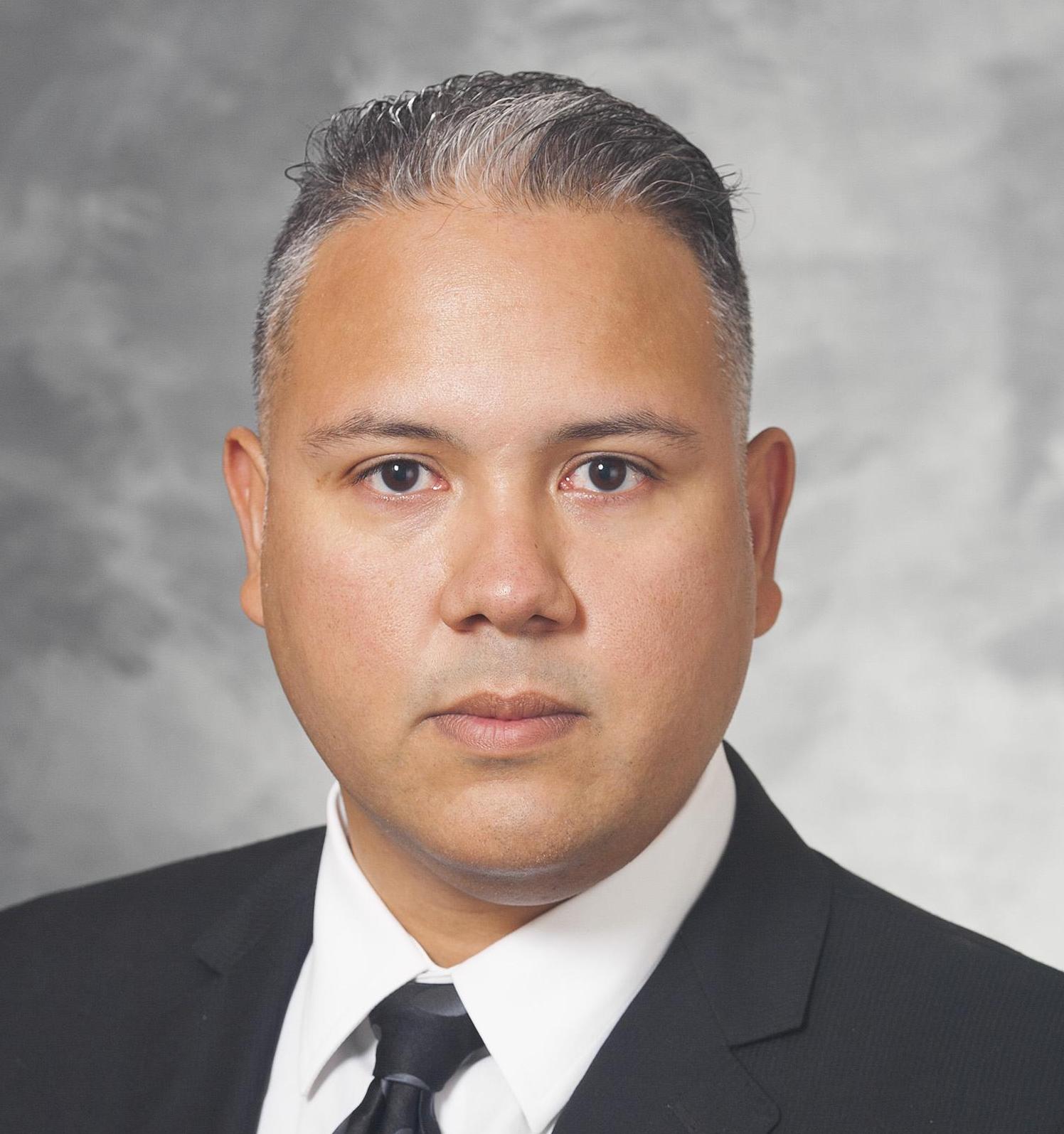Whether or not you wear a face mask in public probably has a lot to do with your political affiliation. And if you’re wearing a mask to show consideration to others, your motivation is likely related to your race.
Those were just a few of the findings in a recent study partially sponsored by Arizona State University that looked at how Americans are behaving during the COVID-19 pandemic.
Edward D. Vargas, an assistant professor with ASU’s School of Transborder Studies, was a principal investigator on a seven-member interdisciplinary team that pooled its research funds together to start the National Panel Study of COVID-19.
The study, which commenced in March, looked at how most ethnicities have shifted their behaviors in the past few months.
Vargas researches the effects of poverty and inequality on quality of life, focusing specifically on health, immigration status and social policy, and how these factors contribute to the well-being of vulnerable families.
Edward D. Vargas
ASU Now spoke to Vargas about the study, which is making national headlines.
Question: Tell me about the makeup of the research team and why you decided to undertake this study.
Answer: Our interdisciplinary research consists of principal investigators from UCLA — Matt Barreto and Tyler Reny; University of New Mexico — Gabriel R. Sanchez; and the University of North Carolina at Chapel Hill — Joaquin Rubalcaba. In addition, we are also working with colleagues from Howard University — Jevay Grooms — and my alma mater Indiana University — Alberto Ortega. Our team also highly values mentorship, so we are also using this opportunity to train and work with a diverse team of graduate students across institutions.
Given the urgency of the pandemic, we pulled our research funds together and started the National Panel Study of COVID-19. The first wave, n=4,081, of the survey was administered from March 12 to March 15, dates that overlapped President Trump’s announcement of a national emergency in response to the coronavirus outbreak on March 13. The second wave included both respondents from the first wave and a new cross section of respondents for a total sample of 3,060 completed interviews from April 14 to April 21. We will continue to follow respondents in May, June and July. We decided to undertake this study to help shape policy and use our positionality as researchers to better understand how Americans are responding to the pandemic. In keeping with best practices and data transparency ethics in the social sciences, the original survey data shall be posted to Inter-University Consortium for Political and Social Research (ICPSR) in the near future.
Question: Most COVID-19 researchers are focusing on health, but your team is focused on mental health and shifting behaviors among Latinos, Native Americans, African Americans and Asian Americans. Which community shifted their behavior the most and why?
A: In general, we are finding that racial and ethnic minorities were more likely than whites to shift their behavior as a result of the coronavirus. For example, in our recent published blog, we find that the Asian American and Pacific Islander community was nearly twice as likely to report that they amended travel plans to reduce the spread of the virus (59% compared to 33%), with Latino and African respondents also being more likely than whites to have followed this important suggestion from public health leaders at the time.
Q: Can you give us a sample of how each of the aforementioned communities are changing their behaviors and what’s motivating those changes?
A: When it comes to wearing masks we are also finding large differences in this behavioral change. For example, in our recent Washington Post article, we find that Republicans are less likely than Democrats to say they have been wearing a mask in public. An overwhelming majority, or 73%, of self-identified Democrats report that they do so, only 59% of Republicans and 58% of independents report doing so. We also found that rates of mask-wearing differed by race and ethnicity. Communities of color reported that they were more likely to have taken this important step; 82% of Asian Americans, 71% of Latinos and 74% of African Americans said they had been wearing a mask or scarf, while only 66% of whites said the same.
Interestingly, we also asked all of the respondents who said that they have worn a mask or scarf in public whether they worry about being mistaken for a criminal while doing so. The answers show a clear distinction by race and ethnicity, with 32% of Latinos and 30% of African Americans worried about this — more than either whites or Asian Americans, at 19% for both groups. Reported mask wearing is even higher for black and brown men: 38% of Latino men and 36% of African American men worry about police perceptions when they wear masks.
Q: What’s the next phase of your study and what are you anticipating in your findings?
A: As states and local communities across the country are relaxing their rules and beginning to open up, our next wave will gauge this transition. In addition, we will continue to ask respondents about their mental and physical health and the financial and emotional challenges they face ahead and how individuals are being impacted by the Cares Act and the proposed HEROES Act. Our preliminary results suggest that the coronavirus has caused a historic rise in mental health problems for Americans as they are statistically more likely to report being anxious and depressed and if they know someone personally who has tested positive for COVID-19 this disparity widens.
Our research also shows that essential workers and health care workers in particular are more likely to report poor mental health relative to nonessential workers and those who have not been financially impacted by the coronavirus outbreak. Lastly, contrary to popular belief, our data also suggests that female introverts and extroverted men with children who are now having to work from home are mostly likely to be reporting poor mental health. In our next phase, we will continue to track these trends and use this opportunity to collaborate with ASU colleagues on the social impacts of the coronavirus pandemic.
Top photo: Screenshot of a videoconference with many people connecting together. During quarantine at the time of COVID-19, many people are connecting with family and friends by using video conference and video calls. Photo by iStock/Getty Images.
More Health and medicine

College of Health Solutions alumnus named Military Medic of the Year
By Keri Hensley and Kimberly LinnJonathan Lu has looked out for the health of his fellow military service members his whole career, starting with his role as a combat medic in the U.S. Army.Driven by…

ASU, Mayo Clinic forge new health innovation program
Arizona State University is on a mission to drive innovations that will help people lead healthier lives and empower health care professionals to develop novel new health solutions. As part of that…

Innovative, fast-moving ventures emerge from Mayo Clinic and ASU summer residency program
By Georgann YaraIn a batting cage transformed into a custom pitching lab, tricked out with the latest in sports technology, Charles Leddon and his Mayo Clinic research teammates scrutinize the…

